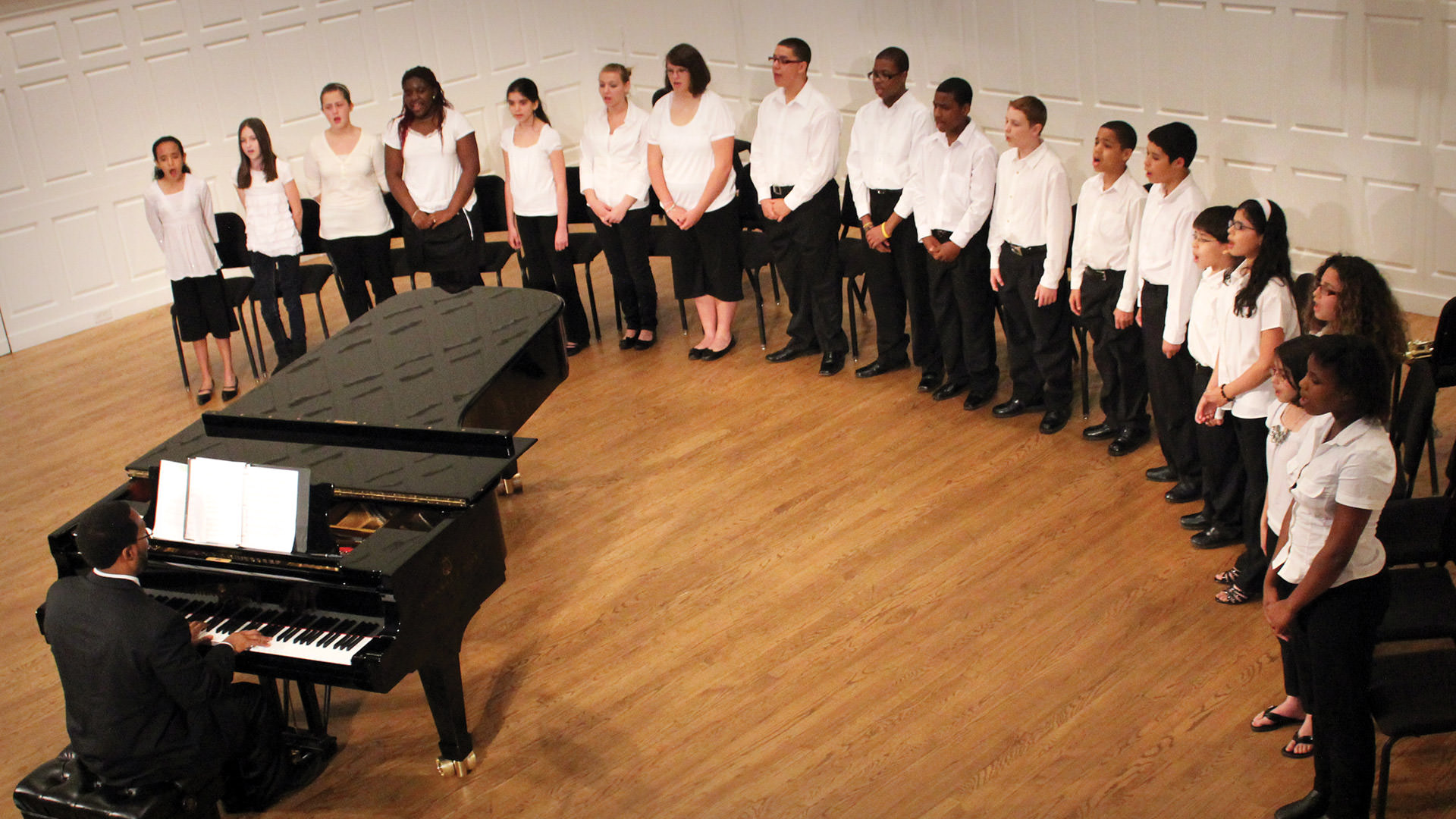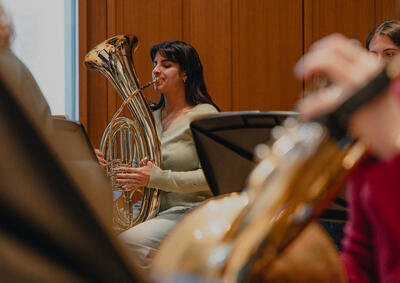Yale School of Music and New Haven Public Schools: Changing lives through music-making
It’s not uncommon for the students at the Yale School of Music to “blow their own horns,” but when it comes to the wealth of opportunities the school presents to New Haven schoolchildren, the school leaders aren’t known to boast.
YaleNews recently met with Michael Yaffe, associate dean at the School of Music, to discuss the recent Music in Schools Symposium, the numerous programs that the school provides for New Haven schoolchildren, and how this collaboration gives students “distinctive opportunities to flourish as musicians.”
An edited version of that conversation follows.
What year-round programs does Yale offer for New Haven schoolchildren?
We partner very closely with New Haven Public Schools in many ways. Our Teaching Artist program pairs about 35 of our School of Music graduate students with the full-time certified music teachers in the schools. This program reaches about 400 children every week. All of our graduate teaching artists are trained and reviewed by Ruben Rodriguez, our lead teacher.
On Saturdays, we collaborate with New Haven schools on the All City Honors Ensembles, currently held at Wilbur Cross High School. The program involves an audition process led by our graduate students and New Haven teachers. The ensembles feature 200 New Haven schoolchildren performing in orchestra, band, chorus, and guitar.
During school vacations there are weeklong camps particularly for young kids in music. We also run a solo music showcase in Sprague Hall where schoolchildren who are nominated by their teachers have the opportunity to perform for their peers on the Sprague Hall stage. All of these programs are made possible from an endowment created by the Yale College Class of 1957.
Does the School of Music also sponsor summer programs for New Haven schoolchildren?
During the summer, we host the Morse Summer Music Academy. Funded by an endowment created by Lester Morse ’51 and Enid Morse, it is a comprehensive program for about 140 accomplished student musicians in 4th through 11th grades from New Haven public schools. I truly believe that music is a framework for making a community better, and in New Haven it is really true. The Morse Academy is a prime example of that. There are more than 30 different cultures represented in the academy, and the diversity that is in New Haven is truly on display.
Tell us about the recent Yale Symposium on Music in Schools.
At the beginning of June, the School of Music held its fifth Yale Symposium on Music in Schools. This year, the event focused on partnerships between public schools and private music organizations. We selected 38 partnerships through an application process. The attendees were public school teachers or administrators and representatives from the affiliated universities, orchestras, opera companies, or arts councils. The programs were at varying levels of development, but they all had one thing in common: They were committed to the idea that public school music education is important. I was quite impressed with the quality of the people who attended.
What topics did the symposium explore?
We were talking specifically about the value that these partnerships bring to music education. We were looking for other organizations that had similar programs to ours and that were willing to have serious, substantive curricular discussions with the public school representatives to make sure that the program that was developed aligned with what the school needed. The overriding sentiment there was a lot of optimism that music really can really have a positive impact on a child’s life.
We challenged the participants to think about how they could strengthen the collaborations between the music organizations and the schools. Another focus of the event was to help these partnerships develop language that justifies why it is vital for a music organization to support the children in its community.
What were the outcomes of the symposium?
The most meaningful outcome to me was that the participants were inspired to go home and make their partnerships even stronger.






